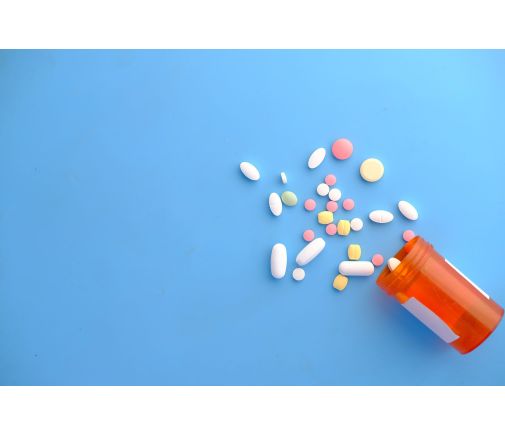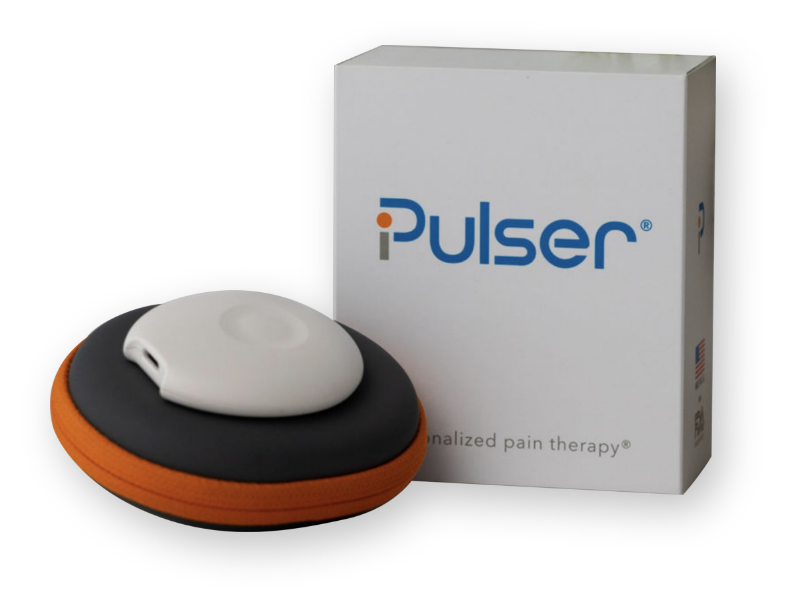Managing your pain can become a difficult task especially when you are experiencing it for long periods of time. Often with short-term pain doctors will prescribe medication that not only effectively reduces your pain but can become highly addictive. Being mindful of these medications ahead of time will help you to use them as directed and avoid chemical dependency.
How Do Pain Medications Work?
Pain medications interact with the communications system between your brain and nerves. Your nerves create a collection of fibers that send communication from one part of the body to another. Most pain medications dull or interrupt this communication between the injury and your brain. If the medication can block these pain messages from sending signals to the brain you will not feel the pain your body is experiencing. It sounds pretty wonderful, right? This evolution in science enables surgeons and doctors to treat their patients in ways where before the pain would not make it possible.
How is Pain Classified?
Different drugs manage different types of pain. Pain is usually classified based on the damage it creates and the length of time you feel it. Short-term pain usually does not last longer than three months. You may experience acute pain or Nociceptive pain after recovering from a surgery, an illness, or even a soft tissue injury. For this type of pain, you may be familiar with taking over-the-counter painkillers like Ibuprofen, Naproxen, or Acetaminophen.
You may find that your pain lasts longer than expected turning into a more chronic condition requiring different medication management. If you are having neuropathic pain due to nerve damage you may receive a more specific treatment. Radicular pain is also nerve pain that radiates from compressed or inflamed spinal tissue.
Topical medications or anti-inflammatory pain medications are often prescribed for this type of pain. If you suffer from this type of pain your doctor may prescribe anti-seizure or antidepressant drugs like Venlafaxine or Gabapentin. These medications help relieve nerve pain. In certain cases, doctors may also give opioids like tramadol or oxycodone.
What Are The Five Most Addictive Pain Medications?
Pain medications not only reduce physical pain but help to avoid the mental trauma that also accompanies an injury. The body can react in negative ways as a result of intense pain. Pain causes tenseness throughout the body as well as causes delays in recovery. Many physicians use pain management to help patients heal in the comfort of their own homes. Pain medications allow patients to get out of the hospital faster and return to their families. The goal is to manage pain until the body has recovered. For those who experience chronic pain, managing medication can get complicated.
The longer you are on painkillers the higher the risk of dependency or addiction. Unfortunately, over 36 million people worldwide struggle with an ongoing addiction to pain medication. The following drugs are the most addictive:
- Fentanyl- This opioid produces the strongest effects. You can create a tolerance easily within just a few days. People who become dependent on this drug usually find that they have to increase their doses to maintain a euphoric effect. This dangerous balance often leads many to overdose. It can come in several forms, a lozenge, a patch, a dissolvable paper put into the mouth, or injected in the hospital.
- Morphine- This pain medication also comes from the poppy seed plant. It treats every different classification of pain. You can take morphine in the form of a pill, as an injection, or some even smoke it. It gives you a warm sensation of comfort and relaxation. It inhibits pain through the central nervous system.
- Oxycodone- This highly addictive drug treats severe pain. It is chemically compounded to release the medication in increments over 12 hours. This drug is commonly found on the black market. When combined with Acetaminophen this drug creates Percocet. Percocet even when taken as prescribed can cause dependency.
- Demerol- This opioid is used on a short-term basis to treat severe pain. You should not take this medication if you have breathing issues of any kind as this drug slows your respiratory rate. Demerol can become addictive even when taken as directed.
- Hydrocodine- A common brand name for this drug is known as Vicodin or Zohydro ER. You may have used Vicodin after a surgical procedure or injury. It is usually prescribed in pill or syrup form. This narcotic analgesic treats severe pain and coughing.
These pain-relieving medications are highly addictive. Stopping these pain medications abruptly is never advisable. Withdrawal symptoms are intense and can lead to death. General withdrawal symptoms include flu-like sickness, muscle aches, sweating, anxiety, and depression. It is important to talk with your physician before stopping any medication regimen.
What Are The Signs of Pain Medication Addiction?
Anyone can become addicted to pain medications. Most people never considered that they would struggle with dependency before becoming addicted. Knowing the signs and symptoms of dependency can help you become more aware and cautious of what to avoid. If you have a history of addiction or it runs in your family it is important to talk with your doctor about this.
Painkiller addiction most often occurs when the patient uses medicine outside of the prescribed time frame in hopes of achieving the intended pain relief or high.
Dependency occurs when you are unable to stop taking the medication. You feel that you need it to feel normal or better. This can become very confusing because the reason you began taking this medication was to feel better and that is what it accomplished. You may attempt to isolate yourself or withdraw from social gatherings. You may start to experience withdrawal symptoms even within a few hours of not taking it. Sleep disturbances, stomach upset, and irritability are also withdrawal symptoms you may experience.
How to Avoid Mismanaging Pain Medication?
Like previously mentioned, the road to addiction is often unintended. No one wants to be in pain so it is understandable that you would not want to live in that state. Here are some steps you can take to get ahead of addiction:
- Take all medication as prescribed by your doctor and discuss with your provider ways to avoid dependency.
- Discuss in detail with your doctor any history of addiction, family predispositions, or other substances you intake.
- If you are a teenager or in your early 20’s you are more likely to become addicted to painkillers. People may even target you if they know you have had a recent injury and approach you to join in illegal activity. Being mindful of this is important so you do not become involved in this type of activity as it could destroy your life. All people groups are susceptible to substance abuse, even seniors.
- If you struggle with mental health illness you may also become more likely to abuse pain medication.
- Accessibility is a huge factor. If someone in your household has pain medication or you have constant access to these drugs your likelihood of mismanagement increases. If you are in the medical field and work as a nurse, pharmacist, medical aid your chances of addiction increase.
- Avoid changing doctors if possible. It is not difficult to jump from doctor to doctor and attempt to get one to prescribe more pain medication when another would not.
How To Get Help If You Find Yourself Dependent or Addicted to Pain Medication?
Pain medication addiction is quickly becoming an epidemic in the United States. In the last several decade’s opioids have become highly overprescribed. This situation combined with the addictive nature of painkillers has caused America’s opioid crisis. Over half the population is taking at least one medication with an additional 10 percent using 5 or more prescriptions in the past month.
If you or someone you know is struggling with pain pill addiction there are many ways to get help. Your primary care provider can refer you to treatment agencies that specialize in opioid and substance addiction. They incorporate proper treatments to help you manage these symptoms before it becomes out of control.








